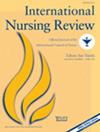Fortifying the Nursing Workforce: Nursing-Led Psychological Capital Interventions to Advance Resilience, Occupational Hardiness, and Engagement: A Randomized Controlled Trial
Abstract
Background
Psychological capital, occupational hardiness, and work engagement are critical factors influencing workplace resilience and motivation. This study evaluates the impact of a nursing-led psychological capital intervention on these outcomes among nurses.
Methods
A randomized controlled trial was conducted with 174 nurses randomly assigned to the intervention group (IG, n = 87) or control group (CG, n = 87). The intervention comprised structured sessions targeting psychological capital development. Data were collected at baseline and after the intervention using validated measures of psychological capital, occupational hardiness, and work engagement. Statistical analyses included independent sample t-tests, paired sample t-tests, and effect size calculations.
Results
At baseline, no significant differences were observed between the IG and CG across sociodemographic variables or studied measures. Correlation analysis revealed strong positive relationships among psychological capital, occupational hardiness, and work engagement (p < 0.001). After the intervention, the IG demonstrated significant improvements across all outcomes. Psychological capital increased significantly in the IG (t2 = 14.463), with improvements noted in self-efficacy (t2 = 8.693), hope (t2 = 12.519), resilience (t2 = 13.285), and optimism (t2 = 7.833). Occupational hardiness subdomains also improved significantly, including control (t2 = 6.932), commitment (t2 = 7.261), and challenges (t2 = 6.561). Work engagement showed significant enhancements in vigor (t2 = 9.689), dedication (t2 = 6.315), and absorption (t2 = 8.174). Minimal changes were observed in the CG across all measures.
Conclusion
The psychological capital intervention effectively enhanced psychological capital, occupational hardiness, and work engagement among nurses. These findings highlight the potential of targeted interventions to improve workplace resilience and motivation. Future research should explore the long-term impacts of similar interventions in diverse professional settings.

 求助内容:
求助内容: 应助结果提醒方式:
应助结果提醒方式:


